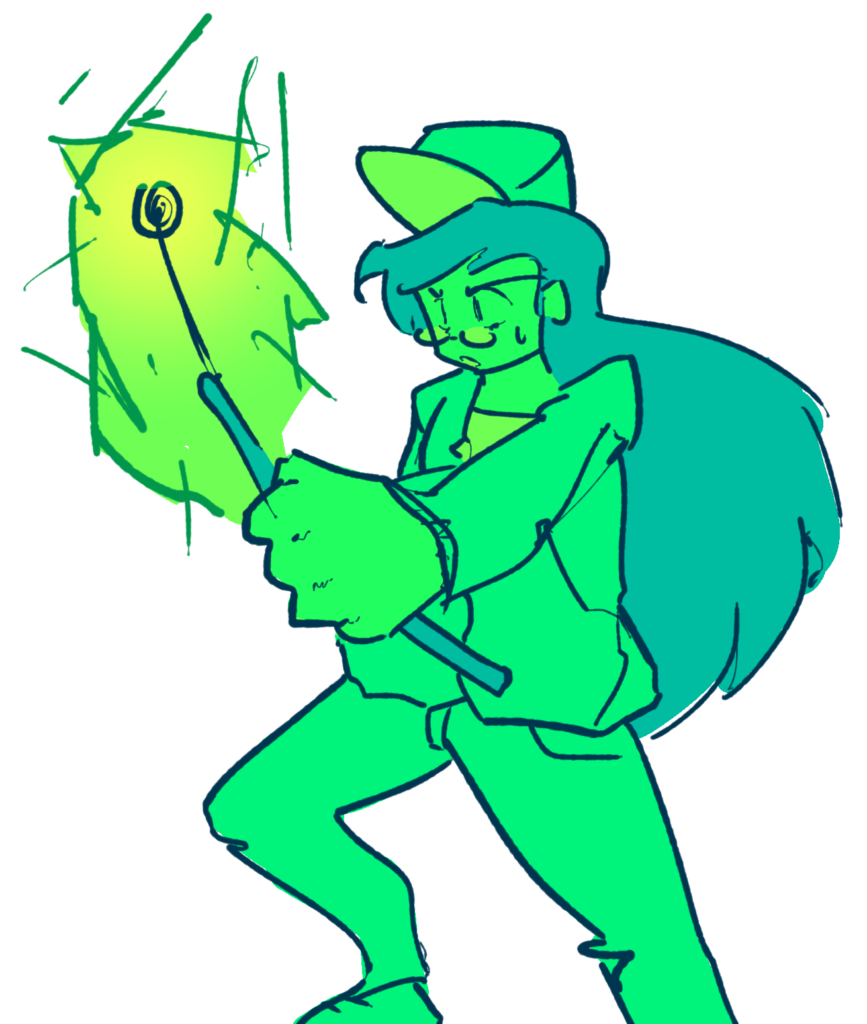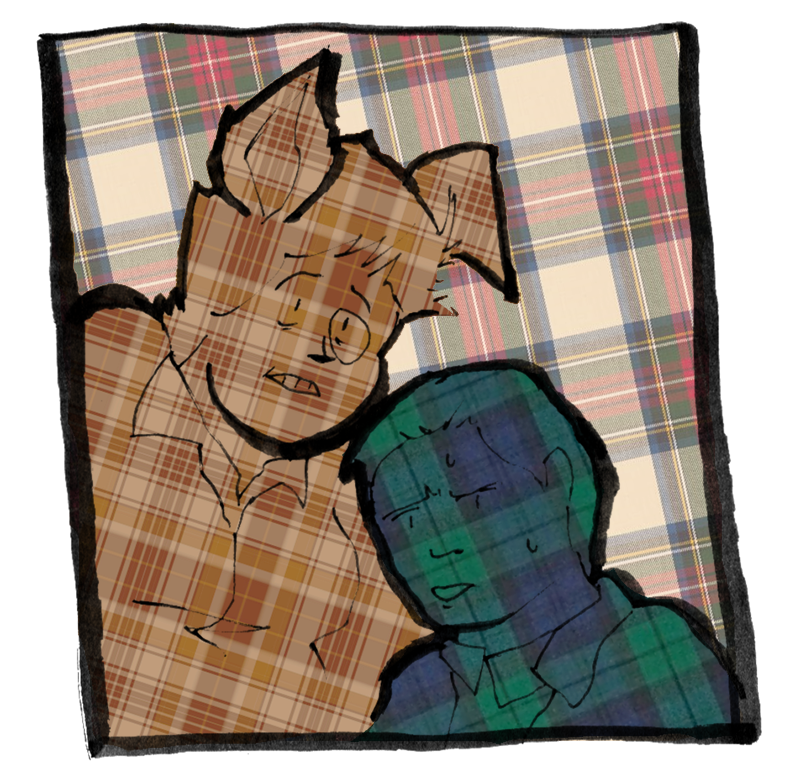This is a free sample of the update posts I’ll now be uploading to my Patreon monthly. Check it out!!
Continue reading “NEWSBLAST: December 2023”Tag: sci-fi
What Is a LitRPG? A Simple Guide for the Deeply Confused
LitRPGs are like books plus video games. And while most websites defining them will assume you already know a lot about video games, I’ll pretend you’re my mom, who hates them and has no idea what kinds of books I’ve been editing for the past several months.
This explanation will be slow and methodical.
Continue reading “What Is a LitRPG? A Simple Guide for the Deeply Confused”StopTank and Writing For the Heck of It

Sometimes you just gotta write a thing without knowing whether you’ll ever put it somewhere.
Continue reading “StopTank and Writing For the Heck of It”Karakuridōji Ultimo Review: Too Much Promise

Why does nobody talk about this ambitious, high-octane, bizarrely stylish manga?
When I was in high school, seinen and shōnen manga (especially edgy ones) were my favorite things. Hunter x Hunter, Parasyte, Attack on Titan, Death Note—all series I devoured. But what manga felt like full-on events? I can only think of two: Akira and Ultimo. Akira has such an impressive pedigree (and such a huge print size) that buying it can’t not feel like an event. But all Ultimo had was suspense and promise.
It also had Hiroyuki Takei and Stan Lee, but trust me, I didn’t care about that.
Continue reading “Karakuridōji Ultimo Review: Too Much Promise”Pretty Strong: Ultimo, Manga Heroes, and Gender Roles in the Early 2010s

Recently I finished Ultimo, a manga which history will remember only as a footnote in Hiroyuki Takei’s career that weirdly has Stan Lee’s name on it. While I didn’t finish it back in the day (when, after many delays, it petered out into a ‘meh’ conclusion), I was always captivated by its high ambition, its sleek art style, and its sheer charm. Take Ultimo himself: his design strikes me as effortlessly cute, cool, and beautiful at the same time.
Cuteness and coolness. Beauty and strength. Today I notice that for Ultimo’s character, these are not contradictions. If anything, his beauty is implied to be the reason he embodies ultimate power and goodness.
Continue reading “Pretty Strong: Ultimo, Manga Heroes, and Gender Roles in the Early 2010s”Spaceballs and My Life with Parody Film

My first exposure to Spaceballs was as a kid of around six years old sitting on the family room floor. It was on that floor that I also watched my father watch Mystery Science Theater 3000 and the Star Trek episode about tribbles, about how troublesome they were. On a similar floor in later years, I would come to watch my father watch Monty Python and the Holy Grail, Kung Pow, and a “Weird Al” Yankovic anthology. Spoofy things. Sci-fi things. In-joke things.
I say “I watched my father watch” deliberately, because I had no interest in these things.
Continue reading “Spaceballs and My Life with Parody Film”From “Virtual War” by Gloria Skurzynski
Continue reading “From “Virtual War” by Gloria Skurzynski”“Now, Corgan, how did you get that broken skin on your hand?”
“Dammit, Mendor, I told you I don’t know.”
Mendor’s gasp was like a gale blowing through the Box.
“Where did you learn that word, Corgan?”
“What word?” But he knew exactly the word Mendor meant.
From “Out of the Silent Planet” by C. S. Lewis
A pleasure is full grown only when it is remembered. You are speaking, Hmán, as if the pleasure were one thing and the memory another. It is all one thing. The séroni could say it better than I say it now. Not better than I could say it in a poem. What you call remembering is the last part of the pleasure, as the crah is the last part of a poem. When you and I met, the meeting was over very shortly, it was nothing. Now it is growing something as we remember it. But still we know very little about it. What it will be when I remember it as I lie down to die, what it makes in me all my days till then—that is the real meeting. The other is only the beginning of it. You say you have poets in your world. Do they not teach you this?
…And how could we endure to live and let time pass if we were always crying for one day or one year to come back—if we did not know that every day in a life fills the whole life with expectation and memory and that those are that day?
There’s a book quote on my blog. Why? ‘Cause that’s just what I do sometimes. I also do media criticism, which means everything from analyzing old and new fiction trends to squinting at BlazBlue to complaining about Harry Potter. (It’s the national pastime.)

